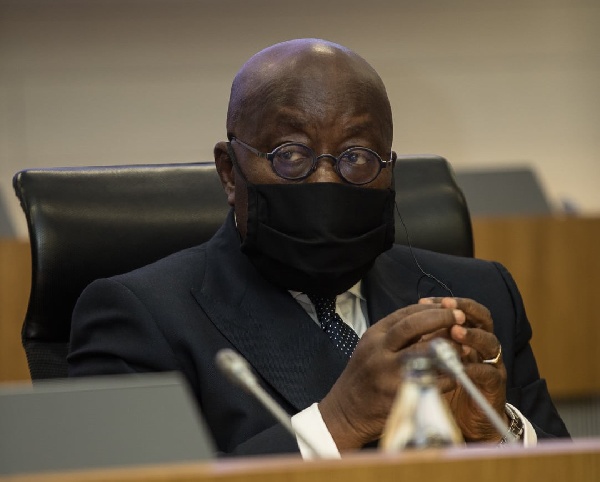Data from the Ghana Revenue Authority (GRA) shows that between 2015 and 2020 the contribution of personal income tax fell from 2.1 percent to 1.22 percent – a situation that is affecting domestic revenue mobilisation, as the country is among the continent’s economies with the poorest tax to GDP ratio.
Revenue generated from personal income tax has continuously seen a decline in the past five years – a situation tax experts and authorities say can be partly blamed on the evasion of taxes by some professionals.
Tax evasion is a major problem; that’s why no less a personality than President Nana Akufo-Addo had cause to lament the country’s tax-to-GDP ratio of 14.3 percent, which he observed compares unfavourably with peers the world over.
“The average tax-to-GDP ratio in West Africa stands at 18 percent, and indeed the recommended ratio for ECOWAS member-states is at least 20 percent. The average for OECD countries is 34 percent,” the president noted.
The ratio further compares unfavourably with peer countries such as South Africa and Kenya, which have 5-year tax-to-GDP ratio averages of 26 percent and 16 percent respectively.
Similarly, a tax expert and lecturer at the University of Ghana Law School, Dr. Abdallah Ali-Nakyea, is calling for professional bodies such as the Ghana Bar Association, the Institute of Chartered Accountants (CIT), Chartered Institute of Taxation Ghana and all others to insist that tax clearance certificates are made a requirement before licences are renewed for professionals in order to discourage tax evasion.
Dr. Abdallah Ali-Nakyea cannot fathom why professionals such as lawyers, accountants, architects and surveyors, who earn a lot of income, are captured under the informal economy due to the contractual nature of their work with clients.
Dr. Ali-Nakyea maintains that professionals are not informal workers, and if they refuse to pay taxes their professional bodies should sack them.
President Akufo-Addo addressed the 2021 Bar Conference of the Ghana Bar Association on Monday (September 13) and warned that the GRA will soon crack the whip on professionals who evade taxes. This is reassuring, because it sets a bad precedent when those who should know better are active dodgers of tax, yet they present themselves as decent citizens who must be accorded all the privileges of high status.
In 2020 Personal Income Tax amounted to GH¢413.5million, representing 1.22 percent of domestic revenue collection.
Minor season rains expected to be heavy…
The Ghana Meteorological Service Department is cautioning the public to prepare to experience more flood situations, as rainfall in the middle-belt of the country has set in.
Although traditionally September to October is recognised as the minor rainy season, the amount of rainfall already recorded in the first two weeks of September gives an indication of what is to come, the Meteorological Services Department says.
For instance, in Kumasi alone the month of September recorded 270.2 millimetres of rainfall, which is quite significant. Indeed, back-tracking the past five years, the strength of rains from September to October have been stronger than the major raining season; therefore, the public should take note and expect predominantly heavy rains in this so-called minor season.
There is likely to be more intensive thunderstorms with rain, which could lead to the occurrence of more floods – particularly in Kumasi and its environs.
It will be recalled that a major flooding incident occurred in June 2021, when most parts of the city were badly affected. The torrential downpour led to the death of a total six people – including an infant, according to the Ashanti Regional Office of the National Disaster Management Organisation (NADMO).
The Minister of Works and Housing, Francis Asenso-Boakye, visited some of the affected areas and asked city authorities to pull down some 300 structures which were identified to be on water-courses. However, two months down the line no visible signs have been seen to show that the directive is being complied with.
A Special Planning Committee has been tasked to review the Kumasi metropolis’ drainage plan, which was last revised in 1991, and it has until the end of September 2021 to submit its report. This is important because several places in the city continue to flood with the slightest shower.
Climate change and population pressure, coupled with other human activities, account largely for persistent flood situations parts of the country’s cities and towns appear to be inundated with. Hence, the citizenry is being impressed upon to take extra caution in order to prevent any calamity during the expected downpours.
Meteorologist Mr. Ofori-Agyemeng notes that September marks the beginning of the rainy season’s second phase for the middle sector – Oti, Ashanti, Eastern, Western North, Bono, Ahafo Bono East Regions – down to the coast.










